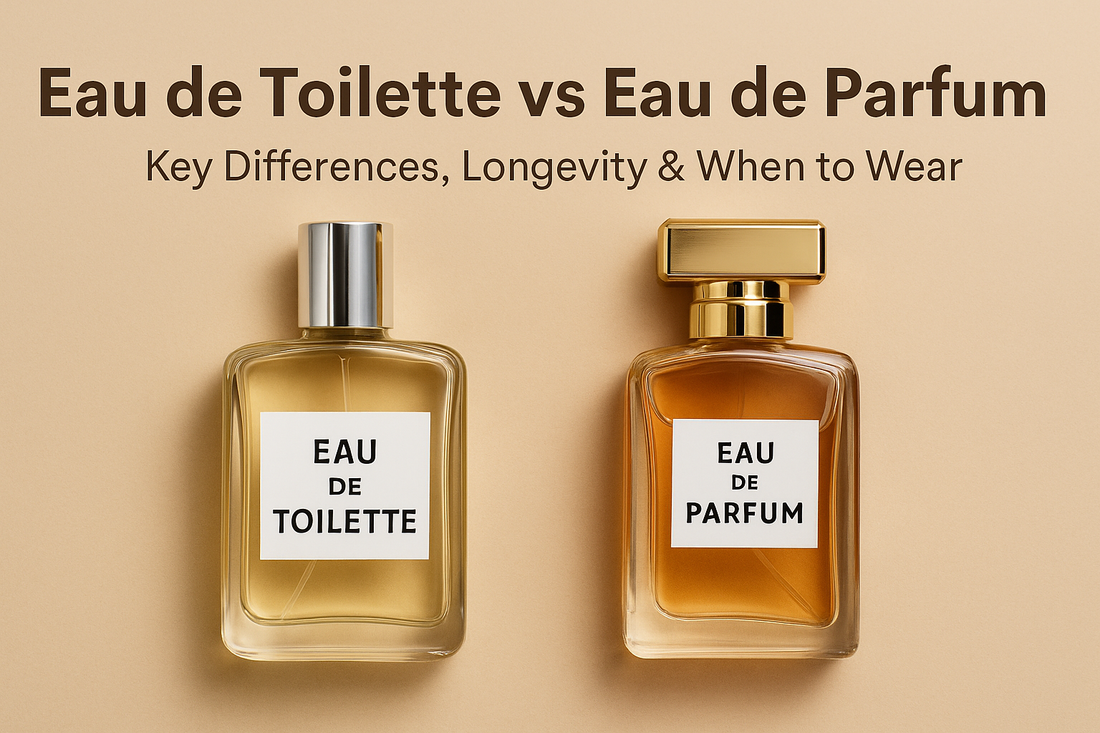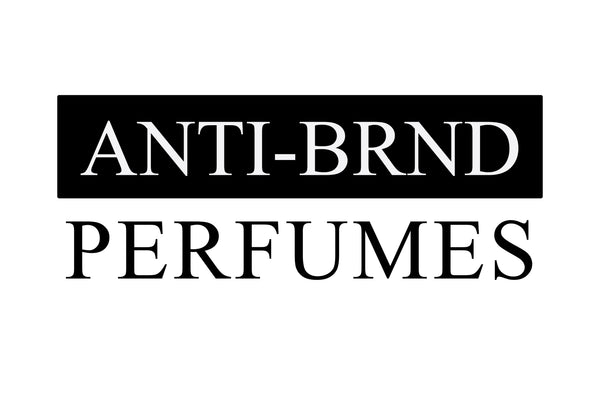
Eau de Toilette vs Eau de Parfum: A Real Talk Guide to Choosing Your Fragrance
Share
You walk into a store, see two versions of the same perfume—one labeled Eau de Toilette, the other Eau de Parfum—and suddenly, you're not sure which one is right for you.
They look alike. They even smell kinda similar. But the price tags? Not so much. And when you start Googling terms like “eau de toilette edt” or “eau de parfum edp,” the explanations get either super scientific or overly fluffy.
Let’s cut through all that. If you’re wondering what the difference really is, when to wear which, and how to find your signature scent, this guide breaks it all down—like a friend helping you shop, not a sales rep.
What Is Eau de Toilette (EDT)?
Eau de Toilette, or EDT, is what a lot of people wear daily without even realizing what it means. It’s the kind of fragrance that doesn’t overpower a room—but still gives you that “I smell good, and I know it” vibe.
So, what’s in it?
-
Fragrance oil concentration: around 5% to 15%
-
Lifespan on skin: 3 to 5 hours
-
Overall vibe: Light, fresh, and super wearable
This lower concentration of perfume oil makes it less intense—which means you can spritz it generously, wear it to work, or even toss it in your gym bag.
Best For:
-
Everyday wear
-
Warm weather
-
First dates where you don’t want to come on too strong
Toilette and eau de formulas are often the choice for minimalists or folks who like to reapply throughout the day without feeling too “done up.”
What Is Eau de Parfum (EDP)?
Now, Eau de Parfum, or EDP, is the big sibling. It’s richer. Heavier. And if EDT is your daily outfit, EDP is what you wear when you dress up.
Inside the bottle:
-
Fragrance oil concentration: 15% to 20%
-
Lifespan: 6 to 8 hours (and sometimes even longer)
-
Scent profile: Deeper, warmer, evolves more over time
You’ll find eau de parfum edp versions of many popular scents, and they tend to feel a bit more luxurious and full-bodied. Not necessarily louder—but more “present.”
Best For:
-
Special occasions
-
Cold weather
-
Weddings, parties, and evenings where you want your scent to linger
If you’ve ever put on a perfume and found yourself catching little whiffs of it throughout the day—that was probably an EDP.
EDT vs EDP: Let’s Compare
Here’s a quick breakdown to make it super clear:
| Feature | Eau de Toilette (EDT) | Eau de Parfum (EDP) |
|---|---|---|
| Fragrance oils | 5% to 15% | 15% to 20% |
| Longevity | 3–5 hours | 6–8+ hours |
| Intensity | Light and crisp | Deep and long-lasting |
| When to wear | Everyday wear | Special occasions |
| Sillage (scent trail) | Subtle | Noticeable |
| Price point | More affordable | A bit pricier |
| Good for sensitive noses | Yes | May be a bit intense |
What About Eau de Cologne and Parfum?
To really understand parfum and eau de variations, let’s quickly look at the full spectrum of fragrance types by concentration:
| Type | Fragrance Oil % | Longevity | Ideal Use |
|---|---|---|---|
| Parfum (Extrait) | 20–30% | 12–24 hours | Formal events, cold weather |
| Eau de Parfum (EDP) | 15–20% | 6–8 hours | Daily or evening wear |
| Eau de Toilette (EDT) | 5–15% | 3–5 hours | Everyday, work-friendly |
| Eau de Cologne | 2–4% | 1–2 hours | Refreshing spritz, summer |
| Body Mist | <2% | Less than an hour | Quick refresh post-shower |
How to Pick Your Signature Scent
There’s no single “right” answer here—fragrance is personal. But here are a few ways to help you decide:
1. Start With When You’ll Wear It
-
For everyday wear, office settings, or coffee dates: EDT
-
For special occasions, evening events, or cold climates: EDP
2. Consider Your Skin
Oily skin tends to hold scent longer, so you may get more mileage out of an EDT. Dry skin? EDP will stick around better.
3. Budget Matters
If you love a fragrance but the EDP is out of your price range, try layering the EDT with a matching lotion to stretch it.
4. Test the Drydown
Spray both on your skin, not the paper strip. Wait 15–30 minutes. The concentration of perfume oil in EDP means the scent will unfold in layers, revealing richer base notes.
FAQs: People Always Ask...
Q: Does EDP last longer than EDT?
Yes—EDP’s higher concentration of fragrance oils helps it stay on skin for 6 to 8 hours or more, while EDT fades faster.
Q: Is EDP always stronger?
Not always “louder,” but definitely deeper. Some EDPs feel soft and intimate while lasting longer than a bright, airy EDT.
Q: Can I wear EDT at night or EDP during the day?
Absolutely. These aren’t hard rules—just general tendencies. Go with what feels right for you.
Q: Why does my EDP smell different from the EDT version of the same scent?
That’s the magic of fragrance oils. The core notes may be the same, but their concentration and layering change how they unfold over time.
Q: Which is better: Eau de Toilette or Eau de Parfum?
Neither is “better.” It’s more about your routine, your preferences, and how you want your scent to feel.
Final Word: Trust Your Nose
Fragrance is personal. There are no hard rules. What smells amazing on your friend might not work on your skin, and what fades fast for you might linger for hours on someone else.
So the next time you're torn between eau de toilette vs eau de parfum, ask yourself this:
-
How long do I want this scent to last?
-
How bold or soft should it be?
-
Am I headed to the office—or out to dinner?
Then trust your instincts. Test, explore, layer, and find the type of fragrance that feels like you.
